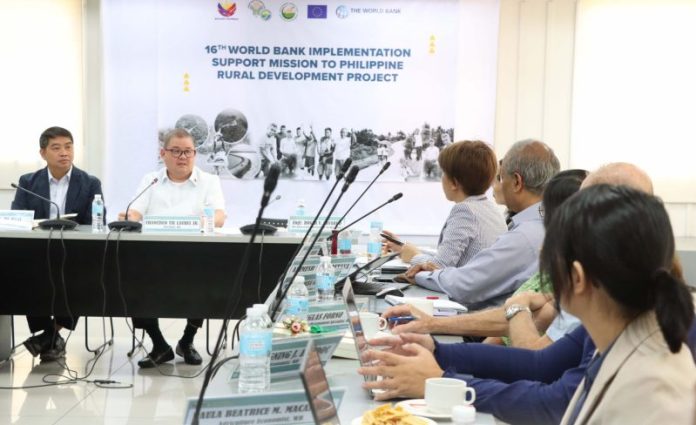
-
Agriculture Secretary Francisco Tiu Laurel, Jr. looks to achieve a stable food supply with the development of marine and agro-industrial estates and a logistics master plan, among other strategies
-
Laurel urged changes to the Philippine Fisheries Development Authority charter to develop marine and agro-industrial estates nationwide
-
He emphasized the need for a logistics plan
-
An assistant secretary focused solely on logistics will soon be appointed
The development of marine and agro-industrial estates and a logistics master plan are part of Agriculture Secretary Francisco Tiu Laurel, Jr.’s strategies to ensure stability in the country’s food supply.
In a statement, the Department of Agriculture (DA) revealed Laurel’s call for amending the Philippine Fisheries Development Authority (PFDA) charter to broaden its role in developing and managing marine and agro-industrial estates nationwide.
These estates, envisioned as one-stop shops, will house ports, cold-storage facilities, silos, and warehouses to store farm and marine products such as rice, sugar, vegetables, palm oil, and other basic commodities, and ensure their stable supply.
“I’ve seen this model successfully implemented in South Korea and Japan. I hope the World Bank can help us realize this vision,” Laurel said during a meeting with the World Bank on November 22.
Aligning with the Philippine Rural Development Program (PRDP) and President Ferdinand Marcos, Jr.’s goal of modernizing the agriculture sector, Laurel emphasized the need for the PFDA to adapt its functions accordingly.
In its PRDP report, the World Bank identified potential funding sources for Philippine agriculture like grant funds from the European Union and the Global Environment Facility to support marine-protected areas.
Laurel, echoing the World Bank’s recommendations, emphasized the necessity for digital transformation in agriculture as well as improving the sector’s logistics.
“Definitely, we need a logistics master plan. That is one thing I think is lacking in the DA,” said Laurel, who disclosed that he will soon appoint an assistant secretary focused solely on logistics to ensure efficient use of public funds.
Marcos had already approved the Department of Trade and Industry’s three-year food logistics action agenda in August. The agenda aims to transform the country’s food distribution system, reduce transport and logistics costs, and enhance food supply chain efficiency.
Laurel disclosed ongoing discussions with lawmakers to adjust the 2024 budget, aligning it with the administration’s goal of increasing farm production for food security and raising incomes of farmers and fishermen to alleviate poverty.
Despite agriculture providing jobs for one in every four Filipino workers, approximately 10 million farmers and fishermen remain below the poverty line.
Latest economic data show agriculture’s contribution to the domestic economy shrinking below single digit amid increasing dependence on imports, particularly rice and meat products. The Philippines’ agricultural trade deficit in 2022 due higher imports is equivalent to P660 billion, around four times the DA’s budget for the following year.
“We need to scale up and get our priorities straight,” Laurel stressed. “I have technically three-and-a-half years to accomplish these things. The DA, under my watch, will do its best to speed things up.”




